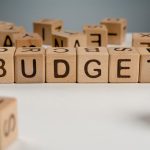As the old saying goes “no one ever picked up a newspaper to look at an empty page”.
Actually, we just made that saying up. However, it does ring true because even if there are no stories to write about reporters can usually fill column space by asking someone desperate for attention to speculate on something.
Outside of politics, if a reporter is looking for blustery talk they’re guaranteed to find a voice ready and willing in the finance and investment sector.
Brexit was only a few weeks back and there was a litany of cataclysmic predictions. Now they’ve been swept under the rug as markets have seemingly shrugged off concerns and focussed on potential stimulus measures. Which is slightly concerning, like Pavlov’s dog, markets now seem to slobber on bad news, expecting that monetary intervention will soon be following.
Regardless, Brexit proved to be little more than a pebble in the shoe of markets. With that in mind, it’s time for a look back at a few of the overblown expectations from the pundits and investment houses.
Sentiment before the vote could be summed up by…
Analysts at French investment bank Societe Generale forecast a 15% drop in London’s FTSE 100 benchmark, and a 10% fall of the US S&P500 if the leave camp triumphed.
Richard Coppleson from Australian broker Bell Potter said global markets would fall up to 15 per cent and he expected Australia’s ASX200 to lose about 7.5%
Sentiment after the vote when markets took their expected dive…
Economist Saul Eslake said there was a danger that large falls on sharemarkets developed a momentum of their own, undermining Australian household sentiment that has historically been very sensitive to falls in superannuation nest eggs. “We are very exposed to the risk that this becomes a global volatility event,” he said.
Not quite…
London’s FTSE 100 closed down 5.6% after the leave vote with an intraday low of 8.7% down. That was the bottom. At the time of writing the FTSE was 5.3% higher than it was before the vote.
The US S&P 500 tumbled 5.3% in the aftermath. At the time of writing it climbed 1.8% higher than it was before the Brexit vote.
Back in Australia the ASX 200 fell 4.5% after the vote, yet at the time of writing it was sitting 2.3% higher than it was before the vote.
No double digit falls or momentum forming global volatility events.
Though their predictions were wrong, it is a credit to those in the finance industry that they are able to find potential risks around the markets they operate in. Not so the real estate industry, who when canvassed for opinion (like always) thought the fallout was a godsend for property!
From Chris Mourd, LJ Hooker’s head of real estate, “most people would have woken up following the Brexit announcement and been very concerned about their superannuation,” Mr Mourd said. “People will be seriously looking at bricks and mortar as a serious option. A lot of people will be doing the numbers on that.”
And not to be outdone, Nerida Conisbee, chief economist at property-listing company REA Group, shrugged off any Brexit uncertainty “If anything, it would boost demand for Australian real estate assets.”
Just like you never ask a barber if he thinks you need a haircut, never ask the real estate industry if it’s a good time to buy real estate.
This represents general information only. Before making any financial or investment decisions, we recommend you consult a financial planner to take into account your personal investment objectives, financial situation and individual needs.





